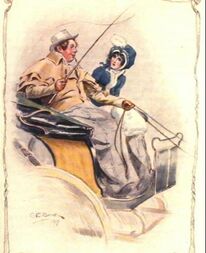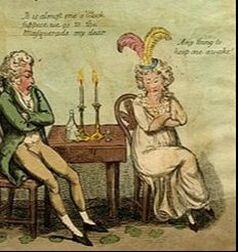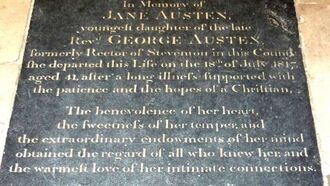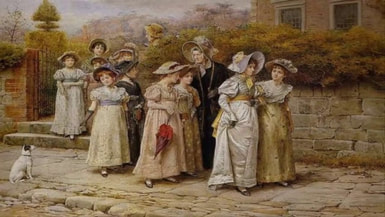| Modern readers who love Jane Austen are eager to find ways to acquit her of being a woman of the long 18th century. Clutching My Pearls is my ongoing blog series about my take on Jane Austen’s beliefs and ideas, as based on her novels. Click here for the first in the series. |
 "'It's well hung." "Wait, what?"
"'It's well hung." "Wait, what?" The “subversive laughter” of the title refers to Heydt-Stevenson’s thesis that Austen’s novels, so genteel on the surface, are actually full of humorous sexual imagery which she included not only for its own sake but to subversively undermine the patriarchy.
That is my restatement of her thesis. In her own words, as stated in an article in Nineteenth-Century Literature: "Specifically, Austen's bawdy irreverence becomes part of a radical critique of courtship as she closes the gap between fallen women and proper ladies, critiques sensibility's ideological sentimentalization of prostitution, and undermines patriarchal modes of seeing."
Heydt-Stevenson finds many examples of sexual double entendre in Austen. I won't dispute her about Mary Crawford’s “rears and vices,” which sure looks like a sodomy joke, although it bewilders me that Austen would do that, but apparently even when Austen uses words like “make” and "known" and “tumble," she is hinting at sexual intercourse. (By the way, this post is not exactly g-rated)...







 RSS Feed
RSS Feed